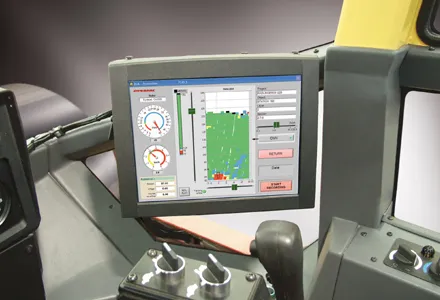
Benninghoven plant owned by Breisach-based Johann Joos Tief- und Straßenbauunternehmung is 40 years old but now features new technology, increasing its range of capabilities.
To meet demands for the use of RAP, the plant has been reconfigured with the latest technology from
The plant upgrade features a Benninghoven BA 4000 system with a capacity of up to 320tonnes/hour. It is equipped with a parallel counterflow drum, providing indirect heating of the RAP. This configuration ensures that the bitumen contained within the RAP is not damaged by direct heating. According to the firm, this layout allows higher RAP percentages (as much as 90% is claimed) to be processed in the mix than with conventional plants.
At the same time, the plant also meets the latest German emissions requirements. Asphalt produced by the plant is at a temperature of 160°C, while its efficient operation is said to deliver major savings in fuel consumption. According to Benninghoven, the configuration of the counterflow drum and the indirect hot gas heating system ensures that product quality is maximised while exhaust and heat emissions are minimised, boosting overall efficiency.
In addition to the hot feed system with its parallel drum and hot gas generator, the plant has also been retrofitted with a cold feed system: a multivariable feed hopper for a RAP material rate of up to 40%. Meanwhile, the preliminary batching units and other components from the previous plant were retained.
The plant has an EVO JET 4 combination burner for oil and coal dust delivering 23.7MW. It has a six-level screening system as well as a hot bin section with a capacity of 170tonnes in seven bins and mixed material storage silos holding 420tonnes. Other new components included a full enclosure around the plant, a filler tower and the latest Benninghoven BLS 3000 control system.








